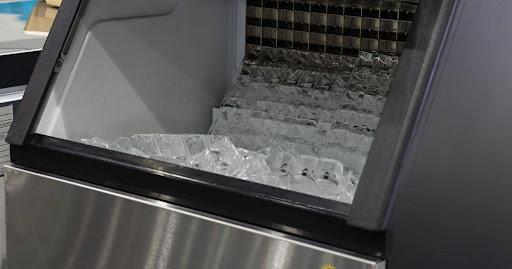Choosing the right commercial ice maker machine is crucial for any business that relies on a steady supply of ice. Whether you run a restaurant, bar, hotel, or healthcare facility, the quality and reliability of your ice maker can impact your operations and customer satisfaction.
With a wide variety of ice makers available, it’s essential to understand the key factors to consider to ensure you make the best choice for your needs. Follow this link for more https://itv.es/icemakers/en/advantages-of-having-your-own-ice-machine/.
Let’s help you figure out how to choose the perfect ice maker, shall we?
Understanding Your Ice Needs
The first step in selecting the right commercial ice maker is to understand your specific ice needs. Different businesses have different requirements based on their size, peak hours, and the type of services they offer. Assess how much ice your business uses on an average day. This will help you determine the production capacity you need from an ice maker.

For instance, a busy restaurant might require a machine that produces several hundred pounds of ice per day, while a small cafe might need significantly less. Knowing your average and peak usage will help you avoid running out of ice during busy times and prevent the inefficiency of an oversized machine.
Ice comes in various shapes and sizes, each suitable for different purposes. Common types include cubed ice, nugget ice, flake ice, and gourmet ice. Cubed ice is versatile and melts slowly, making it ideal for beverages. Nugget ice is chewable and great for soft drinks and blended beverages.
Flake ice is perfect for food displays and healthcare settings. Understanding the type of ice you need will help narrow down your options. Read more here.
For example, if you run a high-end bar, you might prefer clear, slow-melting gourmet ice that enhances the presentation of cocktails.
On the other hand, a fast-food restaurant might benefit more from nugget ice, which is quick to produce and satisfies customer preferences.
Space and Location Considerations
The physical space where you plan to install the ice maker is another critical factor. Measure the area to ensure the machine you choose will fit comfortably and allow for proper ventilation. Ice makers come in various sizes and configurations, including under-counter, countertop, and standalone models.
Ensure you have enough space not only for the machine but also for any additional components like storage bins and water filters. If space is limited, an under-counter or countertop model might be more suitable. These compact models can fit into tight spaces without sacrificing production capacity.
Commercial ice makers require a water supply, drainage, and electrical connections. Ensure that the location you choose can accommodate these requirements. It’s also important to consider the proximity to the point of use, such as a bar or serving area, to maximize efficiency and convenience.
Installing the ice maker close to where the ice will be used reduces the effort and time needed to transport the ice, which can be especially important during busy periods.
Production and Storage Capacity
Matching the production and storage capacities of the ice maker to your business needs is crucial. An ice maker with insufficient capacity can lead to shortages during peak times, while one with excessive capacity can be inefficient.
The production rate of an ice maker is typically measured in pounds of ice produced per 24 hours. Choose a machine that can meet your daily ice needs without overworking. It’s a good idea to account for peak times and potential future growth when determining the required production rate.
The storage bin capacity indicates how much ice the machine can hold at a given time. Ensure that the storage capacity aligns with your usage patterns. If your business experiences high demand at specific times, a larger storage bin can help ensure you have enough ice on hand.
It’s important to strike a balance between production and storage to avoid situations where the machine stops producing ice because the bin is full, or conversely, where the bin runs out of ice during peak hours.
Ice Quality and Energy Efficiency
The quality of the ice and the energy efficiency of the ice maker are important considerations. High-quality ice enhances the customer experience, while energy-efficient machines can help reduce operational costs. Look for ice makers that produce clear, clean ice with minimal impurities. This is especially important for businesses where ice is served directly to customers in beverages.
Machines with built-in filtration systems can help ensure high-quality ice. Clear ice not only looks more appealing but also melts more slowly, keeping drinks cold without diluting them too quickly.
Energy-efficient ice makers can significantly reduce your utility bills. Look for machines with ENERGY STAR® certification, which indicates they meet stringent energy efficiency guidelines. Additionally, consider features like programmable settings and automatic shutoff, which can further enhance efficiency.
Maintenance and Durability
Regular maintenance is essential to keep your ice maker running smoothly and prolong its lifespan. Choose a machine that is easy to maintain and built to last. Some ice makers come with self-cleaning features, which can save time and effort.
Others may require more hands-on maintenance. Consider the ease of accessing components for cleaning and servicing when choosing a machine. Regular maintenance tasks, such as descaling and cleaning the filters, are necessary to prevent build-up and ensure the machine operates efficiently.
Invest in an ice maker made from high-quality materials and designed for commercial use. Stainless steel models are typically more durable and resistant to corrosion. Check reviews and ratings to gauge the reliability and longevity of the machine.
Durable machines can withstand the demands of a busy commercial environment and reduce the frequency of repairs or replacements. Additionally, a well-built machine can provide consistent ice production without frequent breakdowns, ensuring your business runs smoothly.
Budget and Cost Considerations
Your budget will play a significant role in finding commercial ice makers for your business. While it’s important to stay within budget, consider the long-term costs as well. The initial cost of the ice maker will vary depending on the model, brand, and features.
Set a budget and look for machines that offer the best value within that range. Remember that investing in a higher-quality machine upfront can save money in the long run by reducing maintenance and energy costs. A well-built, efficient machine may have a higher initial price, but its durability and lower operating costs make it a cost-effective choice over time.
Consider the operating costs, including energy and water usage, as well as maintenance expenses. Energy-efficient machines might have a higher upfront cost but can save money over time through lower utility bills.
Brand Reputation and Reviews
Researching the reputation of the brand and reading customer reviews can provide valuable insights into the reliability and performance of the ice maker. Choose a reputable brand known for manufacturing high-quality, reliable commercial ice makers.
Brands with a strong track record are more likely to offer durable products and excellent customer support. Well-established brands often have extensive experience in designing and manufacturing ice makers, leading to better-engineered and more reliable products.
Reading customer reviews can help you understand the real-world performance and potential issues of the ice maker. Look for feedback on the machine’s reliability, ease of use, and customer service experiences.
Customer reviews can highlight common problems or praises, giving you a clearer picture of what to expect. Additionally, reviews can provide insights into how the machine performs in different environments and usage scenarios, helping you determine if it’s the right fit for your business.



